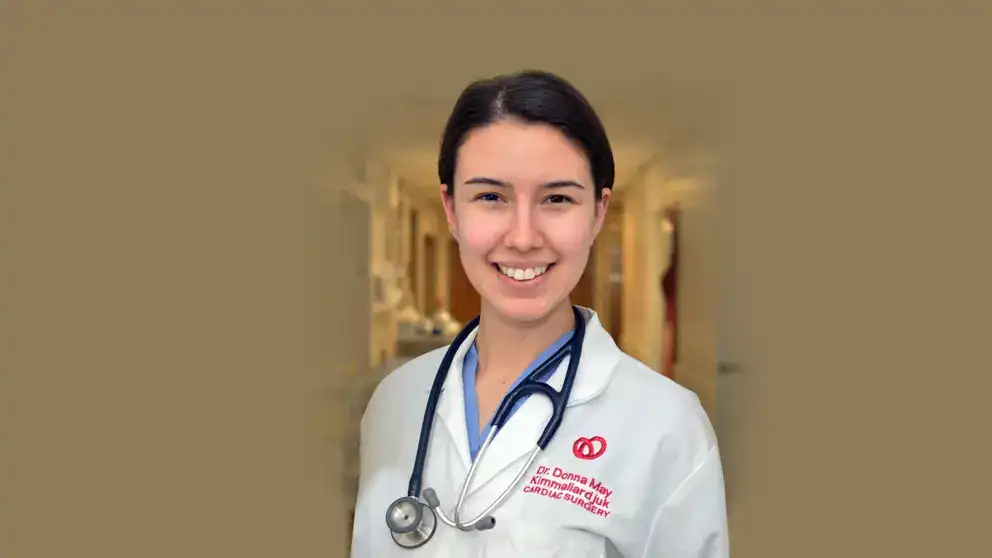From a young age, Donna May Kimmaliardjuk knew she wanted to work with her hands.
The idea of having an immediate impact on someone’s life, she says, stuck with her.
But it was a heart and lung course she took in medical school at the University of Calgary that made her “fall in love with the heart.”
Now in her fourth year of residency at the Ottawa Heart Institute, the 28-year-old is on her way to becoming Canada’s first Inuk cardiac surgeon. She still beams when talking about the heart – especially the long, intricate surgeries that she’s performed as part of her specialization.
Dr. Kimmaliardjuk says making the decision to become a surgeon was an easy one – despite the unknowns. There are no doctors in her family. But she credits the support of her parents, who she describes as “strong and resilient,” with pushing her to work harder and to never give up.
“They taught me that you can achieve what you want, no matter where you come from,” she says.
“Living in the Arctic engrains resilience in your culture. You need to depend on each other. Inuit are so resilient.”
It’s resilience that’s tested almost daily. Indigenous people in Canada — First Nations, Métis
and Inuit —are at greater risk of developing heart disease than the rest of the population. Many people lack access to basic necessities including nutritious affordable food, safe housing and clean water. It’s not surprising then, says, Dr. Kimmaliardjuk, that for many people heart disease and stroke prevention tends to take a back seat.
“It is hard to talk to someone about maintaining a specific blood pressure when they have nine people living in a three bedroom house and are focused on having enough food.”
Compounding the problem is the discrimination many Indigenous people experience within the healthcare system. Women can frequently experience gender bias and can have a harder time getting the care they need.
In recognition of her groundbreaking achievement, Dr. Kimmaliardjuk was named recipient of a 2018 Indspire award.The award recognizes role models who promote self-esteem and pride for Indigenous youth across the country.
Looking ahead, Dr. Kimmaliardjuk says she hopes that her story will inspire other Indigenous youth to pursue their passions – whatever they may be.
“You may not know anyone else doing what you do. Don’t let that intimidate you. Go after your dreams.”
- Learn more about women and heart disease in the Heart & Stroke 2018 Heart Report.

